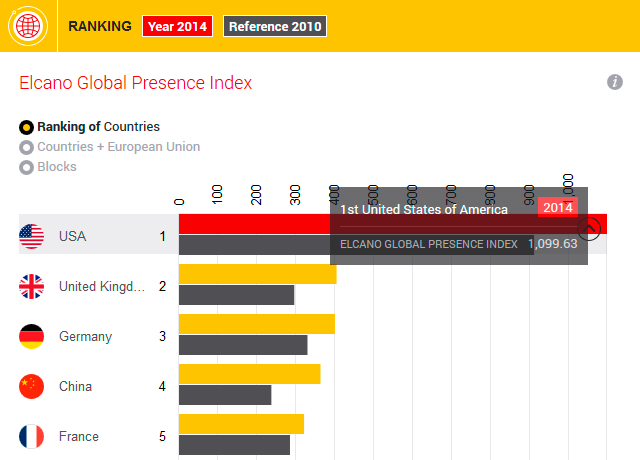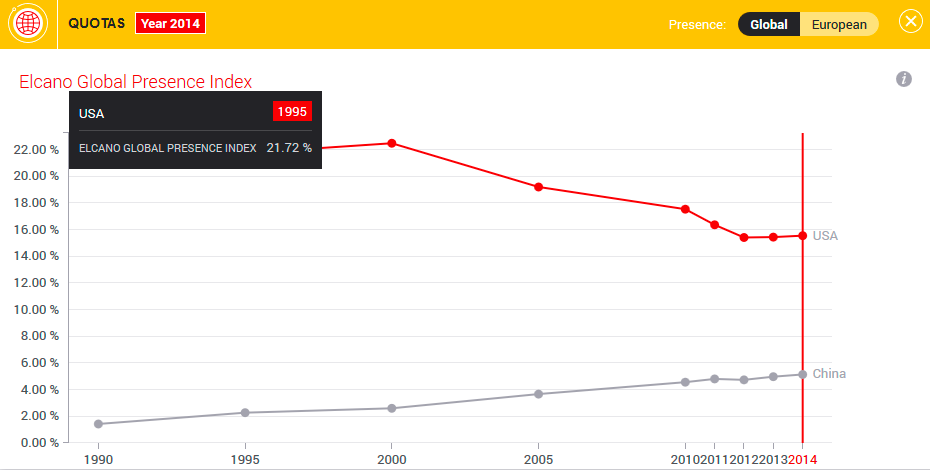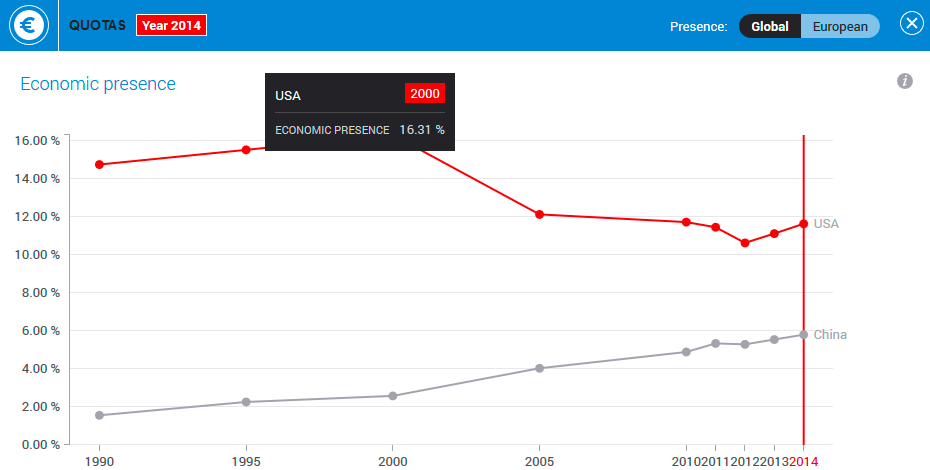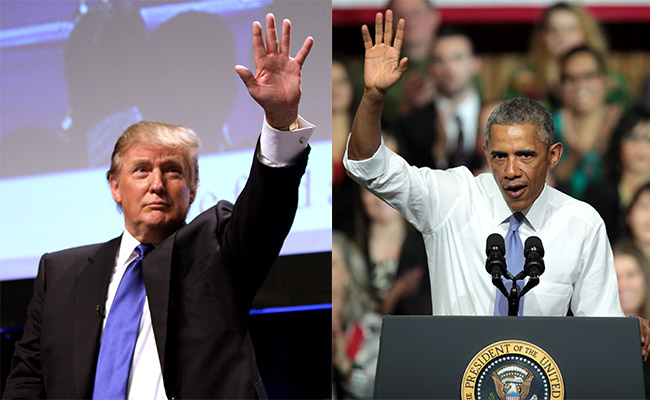During his last State of the Union address, the President of the United States of America, Barack Obama, sought to clear the many doubts raised by the GOP presidential candidates, namely Donald Trump, the controversial entrepreneur, as to the country’s economic strength.
The disastrous and uncertain “end of cycle” that the conservatives forecast is based on the faintness of the economic recovery and the apparent erosion of American leadership abroad. The most powerful nation in the world, they restlessly claim, is perhaps not entirely so; the domestic market is not picking up, Americans live worse lives and emerging countries are contending the United State’s political and economic power. Facing the distrust speech, President Obama holds that the idea of an American economic decline is but a mere fiction and that despite the national and international turbulences, the United State’s economy is still the first economy in the world. In the light of this debate, one should wonder which account conforms better to reality.
Has the United States lost its leading role in the global scene or is it the undisputed “world leader”? The Elcano Global Presence Index may help answer that question, at least with regard to the international scope of American leadership. The higher the presence of a country, the higher a countries influence will be in the shaping of global governance or over the access to the globalization process itself.
One point for Obama: The United States has led, leads and will probably lead in the medium term in global presence
With a global presence close to 1,100 points in 2014, the United States is the country with more foreign projection among 80 countries for which the index is measured. Moreover, this is so in each and every year for which there is record (from 1990 until today). (Chart 1)
In 2014, the distance from the United Kingdom, which holds the second post on the list, was close to 700 points: the United States more than doubles the global presence of its closest “competitor”, so it is likely that it will remain in first place over the following years.

One point for Donald Trump: The United States’ leadership share partly decreases
Even though it remains at the first post, the United States has lost international presence in the “foreign policy space”, which is measured by summing the global presence of the considered countries. Although it fluctuates, the amount of share lost between 1990 (23%) and 2012 (15%) reaches 8 points. (Chart 2).
However, it is worth noting that, first of all, the American global share recovers between 2012 and 2014, though only 13 tenths. Second, and more importantly, the greater part of Western powers’ (even Germany) presence follows this downward trend. This is in a way the arithmetic result of a globalization process to which an increasing number of countries seem to be joining, taking up “plots” of global presence. Regarding emerging economies, particularly Asian economies and even more clearly in the case of China, the rapid growth of their foreign influence means a transfer of presence from declining countries to emerging ones.

Last but not least, if we enclose our analysis to economics, where Trump’s critique focuses, we can see a trend similar to that of the global scale (Chart 3). The economic presence share grows in the 90s (from 14,75% to 16,31%), after the fall of the Berlin Wall, later to be reverted during the 2000s with the emergence of China in the global market (the share drops to a historical low of 10,63% in 2012). The recent tendency towards the reestablishment of American global presence also replicates on the economic sphere.

The United States leads the global scene both in absolute and relative terms. However, its global presence share faces a downward slope. For this reason, the debate between republicans and democrats cannot be settled in favor of one or the other, since their observations are correct and even complementary. American leadership, at least in relation to global presence, is an unquestionable fact. But it is also true that globalization, the prime cause of he United States arithmetic regression, advances. Thus the question is not whether the United States has stopped being the leading country as a result of its foreign presence, but rather how should the leading nation take part in a global scene where emerging players have an ever increasing political and economic presence.



